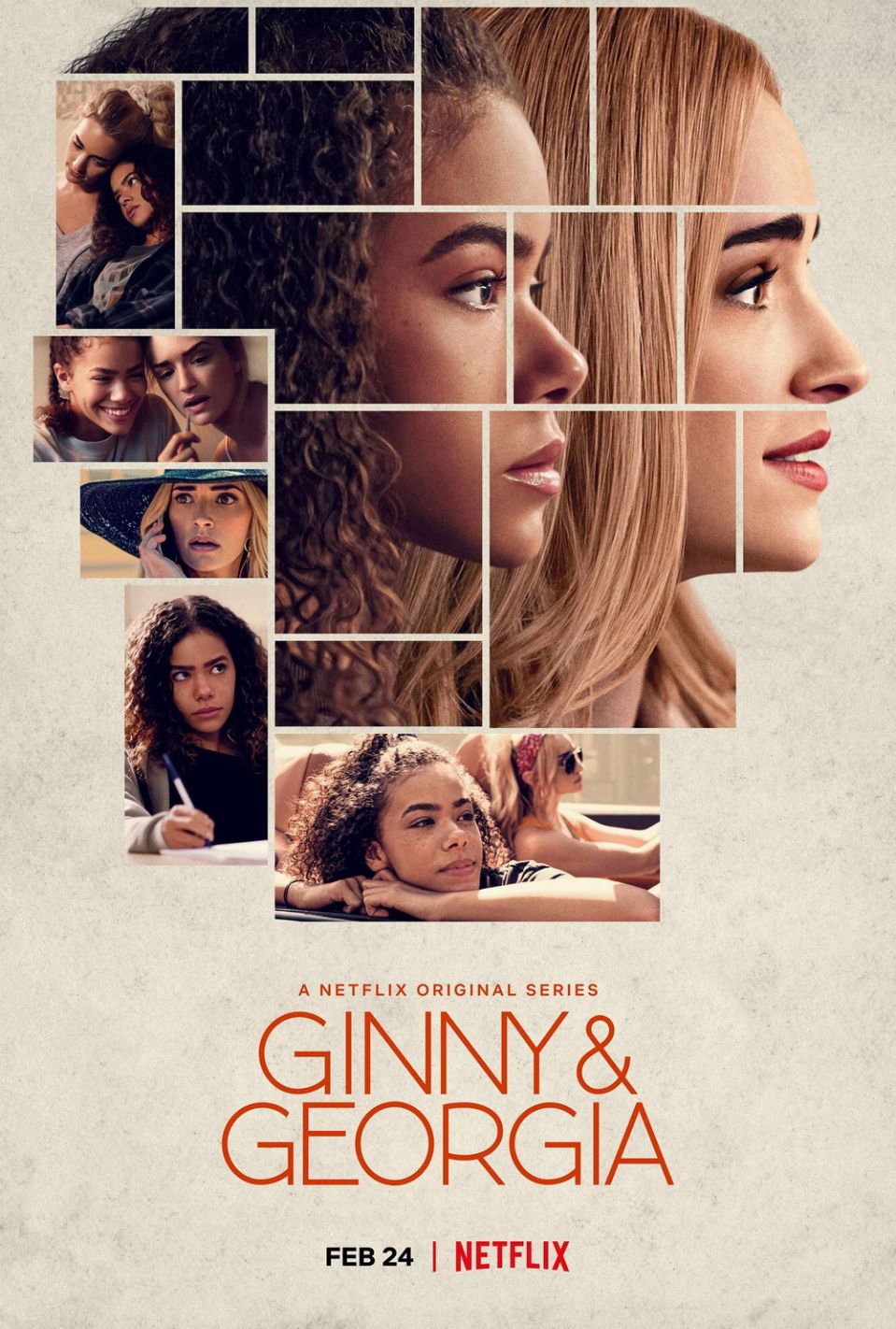With both praise and condemnation from viewers and reviewers, the jury is still out on Netflix original ‘Ginny and Georgia.’ Photo from imbd.com.
Netflix’s new show “Ginny and Georgia” is all but boring. Despite the corny jokes all binge-worthy television shows have, identity, love and murder all come into play at one point. However, the show is also receiving backlash for deeper issues rooted in misogyny and racism, creating a love-hate relationship between Netflix and its viewers.
While the Netflix original has been receiving a number of mixed reviews, I was only able to form my own opinions on the show after binge-watching the entire first season.
Antonia Gentry plays the main character in the show, Virginia “Ginny” Miller. The 16-year-old girl lives with her mom, Georgia, and her half-brother Austin. Right off the bat, realizing that each family member was named after a place was a turn-off for me, but it never became a punchline (thankfully).
The first episode shows Georgia moving her children to Wellsbury, Massachusetts after her well-off yoga instructor of a husband died of a mysterious heart attack. However, the act of packing up and moving wasn’t new to any of them. Georgia had run away from her abusive home at 16 and ended up getting impregnated by her first love, Zion, a boy who she had met on the run. Georgia and Zion tried to make it work as teens, in hopes to create a family for their biracial daughter, but failed to succeed. Later in the show, however, we are reintroduced to Ginny’s father, which ultimately affects everyone negatively.
Throughout the show, viewers are shown flashbacks to Georgia’s teen years, and through these, we discover who she actually is and what she has done. However, we are finding out this information before the characters can. We are given enough information to put the pieces together, leaving viewers on the edge of the seats, waiting to see it all finally unfold.
Georgia’s problematic past leads to private investigations, accusations, the downfall of her family and relationships and much more, but I don’t want to give away too much.
Ginny, however, has always struggled to fit in, but made amazing friends and fell in love at Wellsbury. Still, because of lack of identity, her mother’s secrets and normal teen-girl issues, Ginny’s life falls apart in front of us.
At the beginning of the show, Ginny and Georgia are best friends, self-proclaimed hotter “Gilmore Girls.” However, by the end of the show, they’re making digs at each other left and right.
In the last episode, Ginny makes the decade-old misogynistic “you go through men faster than Taylor Swift” joke at her mother during a fight.
As we know, Ginny Miller is a struggling teen girl, and in reality, I don’t doubt that a teen would use this old joke. However, the fact that Netflix wrote this into their original show, after making millions of dollars off of Swift’s “Miss Americana” documentary, shows Netflix’s true misogynistic, greedy colors.
Swift clapped back at Netflix in a tweet that read, “Hey Ginny and Georgia, 2010 called and it wants its lazy, deeply sexist joke back. How about we stop degrading hard-working women by defining this horse sh*t as FuNnY. Also, @netflix after Miss Americana this outfit doesn’t look cute on you [heart breaking emoji] Happy Women’s History Month I guess.”
Along with this, Netflix included triggering scenes of death, self-harm, violence and guns, along with racist remarks made throughout the show. Although, these are real issues and a reality for a lot of people, Netflix put the well-being of their viewers at risk by not including trigger warnings, and by leaving unnecessarily upsetting scenes in the show.
One example is when Ginny and her Asian boyfriend Hunter get in a fight and engage in “oppression Olympics,” in which the two spewed stereotypes at each other. Ultimately, including this scene did not benefit the viewers or characters in any way, only providing Netflix with the shock value they so obviously wanted.
“Ginny and Georgia” redeemed itself in some areas, such as including LGBTQIA+ relationships (ones that aren’t focused on the fact that the characters are gay or “taboo”), powerful women and diversity. However, as a white cis-woman, I have no place to speak on how the bad and good weigh against each other, and how Netflix’s ignorance will affect these communities.

